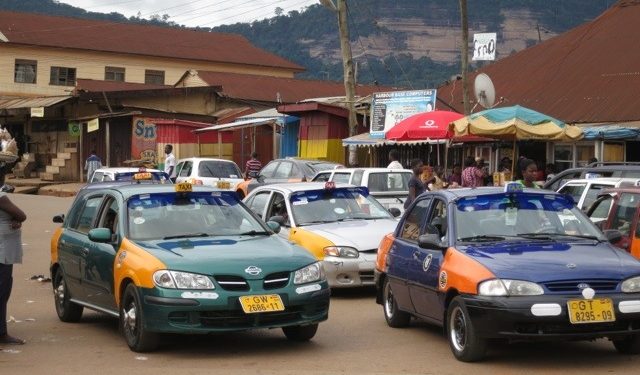The Driver and Vehicle Licensing Authority (DVLA) has announced that all commercial passenger vehicles will from next year have to comply with the mandatory seat belts policy.
The Deputy Chief Executive Officer at DVLA Prince Opoku Adusei, speaking in Koforidua on Thursday, November 10, 2022, during the opening ceremony for the training of accident and traffic enforcement officers and DVLA Technician Engineers, said the authority has successfully gone through the approval section for implementation and is currently awaiting final clearance from the Ministry of Finance for the policy to be implemented in 2023.
“DVLA has successfully gone through the approval section of implementation of seatbelts in commercial vehicles. [We are] waiting for the final clearance from the Ministry of Finance to continue with the procurement process.”
“Very soon, hopefully, next year, we shall come back to you again to fashion out a way to ensure the smooth implementation of this very important policy. This especially affects vehicles that come as vans, which are converted to passenger vehicles,” Mr Opoku Adusei said.
The mandatory seat belt policy is expected to achieve a 50 percent reduction in deaths and serious injuries associated with vehicle accidents by 2020.
An attempt to implement the policy in September 2014 was fiercely resisted by commercial vehicle operators.
DVLA announced then that, it was not going to register new vehicles meant for public passenger service which were without seatbelts fitted to each seat.
The authority also planned not to renew the roadworthiness of commercial vehicles which do not have seatbelts fitted to each seat.
Section 119 of the Road Traffic Regulation Legislative Instrument (LI) 2180 passed by Parliament in 2012, lays emphasis on the use of seatbelts in all vehicles.
Meanwhile, the National Road Safety Authority (NRSA) says available statistics indicate that it has recorded a margin of decrease in road fatalities in the Eastern region.
Between January to October this year a total of 325 deaths were recorded out of 1177 crashes as compared to 357 deaths recorded within the same period last year.
The margin of decrease in fatalities according to the NRSA is attributed to the impact of vigorous education and the Stay Alive Campaign it undertook with the MTTD, DVLA, National Ambulance, Red Cross Society and the National Fire Service.
In an interview with the media on the sidelines of a training program for Accident/Traffic Enforcement Officers and DVLA Technicians drawn, the Eastern Regional Director of the National Road Safety Authority Dennis Yirebu indicated that the authority will enhance its collaboration with various stakeholders to further reduce the fatalities in the coming years.










Discussion about this post